- Home
- Roddy Doyle
A Star Called Henry Page 3
A Star Called Henry Read online
Page 3
And that was where my father came in. He stood on the steps all night and kept the peace. There was privacy inside for those who needed it and licence for those who wanted to whoop. The rozzers and clergymen could come and leave under cover of night. The sailors could come at any time they wanted. But they all had to get past my father. He stood there from six till six, all night long. The letter-in and chucker-out. Soldiers, butchers, politicians - they all had to pass his test. He glared at them as they came up the steps. He looked for something in their faces: crankiness, aggro, badness. If he saw it, they didn’t get past him. He was a great big man but there was more to him than that. Compensation for the missing leg, his body had a sharpness that was quickly understood. Sailors with no English turned back when they read the tilt of his shoulders. Rat-arsed aldermen stopped boasting when they saw Henry’s eyebrow lift. Bankers stared at his chest and knew that he was incorruptible. Others just knew him; they knew about him. In one neat hop he’d have the leg off and their heads open and the leg back on before they hit the ground. He was a good bouncer, the king of the bullies. He often went a full week without having to take off the leg. He was polite and agile. He stepped aside and let the men in, the ones with clear faces, decent men looking for a ride or a bit of after-hours singing. They often tipped him. The girls liked him too. They paid him to buy them their cigarettes and sweets. Dolly Oblong would never let them out; she wanted them white-skinned and captured. She called them all Maria; the clients liked it. She hated the coarseness of the girls who stood on the steps all down the street and the snootiness of the flash houses, like the one she’d worked in for years.
He made a living. He walked home at six in the morning, dying for his bed and the weightlessness that arrived when the leg came off. He was reliable, steady, a father crying out for children.
—He calls it work, does he? said Costello.
Every Friday night.
—Yes, Mister Costello, said Melody.
—Looking after hoors is work, is it?
—I don’t know, Mister Costello, said Melody.
He did other things too, my father. He was reliable, he was steady. A man created from his own secrets, he was well able to keep other people’s. He did things for people. Sometimes Henry wasn’t on the steps of Dolly Oblong’s. He was somewhere else. He gave messages, he delivered lessons. He gave lessons that were never forgotten.
Costello gave his money a fat jangle.
—What about you, Missis Smarty? said Costello.—Are you one of his hoors?
—No, I’m not, Mister Costello.
—No, he said.—Sure, who’d want you?
—I’m off, said Henry to Brannigan.
—Fair enough, said Brannigan.
Brannigan watched Henry hop down the steps. He watched, then listened to the leg as Henry disappeared across the street, into the dark. He pushed out his chest to fill the gap left by Henry.
Melody closed the door. Peace at last. For another week. She wished her Henry could stay at home on Fridays, at least until after Mister Costello had gone. It always took her hours to recover. She cleaned the floor. She dusted the statue.
Henry waited. He waited for the message to come to him. There was no such thing as a quiet wooden leg. Sometimes, the tap tap of the approaching leg was message enough; he walked under a window - tap tap - and back, knowing that the money, the promise would be delivered first thing the day after, or quicker. Tonight, though, Henry needed silence. His was the best-known leg in all of Dublin - tap tap. He needed silence. He stood back in the dark. He listened. He heard the shouts and howls from the streets behind him. A baby crying from a window above, a bottle breaking, a batch of cats singing for sex. He was listening for a wheeze. Any minute now. Any second. He knew his man. He knew his week. It was Friday night. Any second now.
He heard it. The wheeze, and good leather on cobbles. The message. Henry opened his coat; he unstrapped his leg. The wheezing was louder, louder. Any second now. Henry held his leg. Louder, louder, louder. Henry lifted the leg.
Costello never knew what hit him. The weight of the rents pulled him quickly to the ground. He was already half dead. Henry had the leg back on. He stood over Costello, one foot on each side of him. He had to stretch; it was like straddling a sea-lion. Costello was face down. There was some of him alive. Henry leaned down to his right ear.
—Alfie Gandon says Hello.
Then he sat on Costello, hauled back his head and sawed deep into his throat. With a leather knife he’d sharpened that afternoon. Back and across the man’s neck, like a bow over a fiddle. Henry even hummed. Costello’s death rattle was a feeble thing; there was no fight or spunk in him. He quacked and properly died.
Henry stood up. He wiped the sides of the knife on the sleeve of his coat, the same sleeve my mother had leaned on on their first walk into the country. The dirtiest sleeve in the world.
Back home, pregnant Melody said her prayers before she climbed under the sugar sacks and tried to sleep.
Two
No, it wasn’t me in Melody’s tummy. I’m getting there. I’m getting there.
Henry rushed, he skipped all the way, but he dreaded the quick trip home and what he’d find there. Melody was about to give birth. Again. Two children had come into the room over Silver Alley but neither of them had stayed. Henry, and Lil. Their final coughs still roamed through Henry’s ears. Neither got past the first year. There’d been other losses, miscarriages. They’d moved to another room, in another house across Silver Alley. Melody looked over at her old window and saw her children’s faces pressing against the cracked glass. They moved again, to a house on Summerhill. The room was smaller, the house meaner. And moving was easy. Henry borrowed a hand-cart, and up went the mattress, and the chair and stool. Everything else went into the tea chests - the blue statue of Our Lady, the sheets and blanket, the extra leg. They still had the knives and forks but the spoon had gone missing. There was nothing new to put into the tea chests. Henry pushed his failure through the streets to Summerhill. He passed carts, met others, some overflowing with bed-frames, rags, children and grandparents, others next to empty - families on the move. Henry longed for a child to park on top of the hand-cart. Up darker, damper stairs, through a door that promised nothing. There was a window that let them look out at the yards behind the house. The window box still waited for flowers.
This was the room that Henry was rushing home to. This was their last chance, he was sure of it. He was panting when he turned onto Summerhill. He was getting old; he was twenty-six. His hair was greying, although he hadn’t seen it. He was stooped, carrying the heavy ghosts of his children. He could still feel them in his arms. He could smell them. Little Henry, little Lil. His love for them was an unending fight in his chest. He was always on the verge of seeing them. He didn’t sleep any more.
Henry was terrified.
Granny Nash was putting sheets of newspaper on the mattress, pages of the Evening Mail and the Freeman’s Journal.
—The baba will have plenty to read anyway, said Missis Drake.
Missis Drake was the local midwife, the handywoman. She was a huge woman, a mass of muscle and slopes that looked like babies’ heads bursting to get out. Melody wondered was there one in there for her, hoped and hoped there was. She sat on the chair and watched her mother laying the pages of paper on the bed. The buckets were full, one with hot, the other with cold water. The kettle was steaming.
—They say if there’s news of a war on any of the pages then it’ll be a girl, said Granny Nash.
She couldn’t read the headlines she was spreading on the mattress. She was finished now. The papers were flat and orderly and her hands were black. Missis Drake was over at the window.
—Don’t open it, said Granny Nash as she gave the papers a last pat,—till we’ve herself down on the paper. ’Else they’ll all blow away on me. Now, my lady, she said to my mother, her daughter.—Up you get now.
Melody stood up out of the chair. Melody melody el
ephant Melody. It was cruel, all over again; it was only eleven months since the last time she’d had to lie down on newspaper. She struggled the few feet to the mattress.
—Good girl yourself, said Missis Drake.—Off you go.
Melody lay back on the newspapers - they cracked and rustled under her - and Missis Drake lifted the window.
—That’s a grand lookin’ day out there, she said.—A smashing day for bringing a baba into the world.
The steam dashed to the open window. And the pain dashed through Melody.
—Stop whingein’, said Granny Nash.—You’ll give the child a hare-lip.
—None of that shitery now, said Missis Drake to Granny Nash as she rolled over to Melody.—You’re in charge of the water. Any more guff out of you and I’ll fling you out the window. And then we’ll hear some whingein’.
And Melody started laughing. More pain thumped her back right off the mattress. But she was still laughing when she landed.
Henry waited out on the street. He didn’t want to be too near. He paced back and forth, watched at windows by hundreds of people who knew and feared his tap tap. Henry saw none of them. There was no window of his own to look up at; he was on the wrong side of the house. He went through the house to the yard and looked up at his window. It was open. He listened - nothing. He couldn’t stay there - he felt trapped. His coat felt like armour. He’d be to blame if it went wrong again, if the baby didn’t live. It was an idea that had become a rock-solid conviction in the time it had taken him to get from Dolly Oblong’s to the house. It would be all his fault. He listened as he went to the back door - and heard Melody laughing.
She pushed.
—Good girl; there’s no rush. Give yourself a rest.
Missis Drake gathered the sweat from Melody’s brow with a cloth that was gorgeously cold. Granny Nash peered between Melody’s legs; she didn’t have to bend.
—Get away from there, you, said Missis Drake.—You’ll frighten the baba.
Melody laughed and pushed again.
Henry, back out on the street, wore half an inch off his leg as he stomped back and back again. He tried leaning on the railings, sitting on the steps, but he couldn’t stay still. He had to move. He thought about going for a pint or something smaller and stronger; his nerves were in dire need of settling, but he didn’t want to leave his post. She’d laughed. It was years since he’d heard her laughing. He was so frightened, he was terrified that that laugh would be the last thing he’d ever know of Melody. And it would be his fault, because of what he was. He hadn’t noticed it getting dark. It was suddenly night. A bad sign, a bad sign - poor Henry tried to ignore it. Night followed day - he ignored it, he ignored it.
Melody pushed.
Henry’s leg got shorter and shorter. He listened to the fading echo of his wife’s laughter.
Melody pushed.
He tried to hear, tried to remember it. He didn’t notice that he was listing dangerously, dangling over the basement steps.
Melody heaved; her back was turning to screaming stone.
—It’s a hairy head.
—Get out of my light!
Missis Drake cupped the head in her magical mitts.
—The warmth of it, she said and sighed.—There’s power there, I’ll tell you. Welcome home, my treasure.
Melody Melody pushed again.
Henry toppled into the well of the basement.
Melody pushed and I—
me—
Henry Smart the Second or Third came charging into the world on a river of water and blood that washed the news off the papers. Melody fell back on the mattress. Missis Drake held me up by the legs. She dangled me for all to see, like an almighty salmon she couldn’t believe she’d caught.
—It’s a lad, Missis Melody, she said.—He must be more than a stone. A lad and a feckin’ half, he is. His cord is as wide as me wrist.
She slapped my arse and the air around us sang. Granny Nash blessed herself, then high-tailed it out the door to tell my father.
Henry, my dad, looked up from where he’d landed on his back on the rubbish and waste blown down from the street. A shooting star went scooting across the black sky over Dublin. Henry forgot his pain and whooped. He saw Granny Nash squinting through the railings, trying to find him in the gloom and rubbish.
—I know, said Henry.—I know.
Where were the three wise men? Where were the sheep and the shepherds? They missed it, the fuckin’ eejits. They were following the wrong star. They missed the birth of Henry Smart, Henry S. Smart, the one and only me. On the 8th of October, 1901, at twenty-two minutes past seven. They all missed it. Missis Drake was there. Her hands that cupped my head tingled for the rest of her great, long life. Granny Nash was there. She picked up the Freeman’s Journal and discovered that she could read. And my parents? They were happy. For a tiny moment in their hard, hard lives my mammy and daddy were happy.
I was a broth of an infant, the wonder of Summerhill and beyond. I was the big news, a local legend within hours of landing on the newspapers.
—They say that he was born with the teeth already in his head.
—She has to use the blanket off the bed for his nappy.
—A woman seen him said he has enough meat on him to make triplets.
The local oul’ ones all queued up, across the landing, down the stairs, out onto the street, to have a dekko at me. The stairs groaned and threatened to cave in but the prospect of falling into the black well and the waiting rats below wouldn’t budge the oul’ ones. They had to see the famous baby. It wasn’t the weight of me they wanted to see - big brats were ten a penny, and cheaper - it was the glow. I was the Glowing Baby. I lay in a crib that was really an old zinc basin nicely stuffed and padded and I beamed out good health and vitality. I was pink and cream; every little movement of my adorable fists or face seemed to predict a bright future. The visiting women all looked at me, the great big bonny lad, and smiled. They said little, nothing that wasn’t pleasant. Lots of soft oohs and aahs and sighs that joined the sunlight. They nodded to my mother and to Missis Drake who was still looking after her until after she’d been churched, and all walked home happy. The women who’d seen me went through the rest of the day feeling special. Ailing, fading women found long-forgotten spring in their steps. Unhappy women caught themselves smiling. Grieving women tried to sing and found that they could. The Glowing Baby had entered their lives and tickled their misery with his pudgy wee fingers.
But that was all I was, a healthy, good-sized baby. The women had never seen one before. They looked at me and saw a fine lad who was going to live; there was no doubt about it at all, not a shadow. That was my miracle: I glowed guaranteed life. No fever would ever topple me; no cough would ever steal my last breath.
Only a week in the world and already there were stories spinning up and down the streets and alleys, through the open windows of the slums. There was the one about the rat family sitting on the rim of the basin looking in at me, mammy rat, daddy, the rat children and all the relations, tamed by my brightness when my mother woke up and saw them. She sat up and screamed, and they left calmly, out through a hole in the skirting board. The last one looked back and winked.
—Seen them with her own eyes, she did. They all marched off, like they were on their way to mass.
There was the one about Lady Gregory’s head gardener knocking on the door wanting to buy whatever fell into my nappy to spread around Lady Gregory’s rose-bushes; there’d be a man with a carriage and a bucket to carry my shite west to Coole every evening. Henry Smart the Second or Third - Henry, but not yet named - was famous.
Henry Smart the First, my father, was already famous. Still a bigger legend than his newly arrived son, the tap tap of his famous leg was a sound more feared than the banshee’s wail. (The banshee wasn’t folklore. The banshee was a fact, an evil old hag, perched on the roofs of the houses, combing her matted, rat-tailed hair, announcing the coming of death. She was a busy woman. Everyone had
seen and heard her. My mother saw her many times. I saw her every time Granny Nash walked in the door.) After my birth, my father was also born. A new man - again - every time he picked me up and felt the life bounding through me he felt newer still. He held me gently, made an armchair of his colossal hands for me. He sat on his chair and I sat in him. He inhaled with me, and exhaled. And he sang to me. Oh, the bridge is broke down and they all tumbled in. This baby hadn’t been snatched away, never would be snatched away from him. We’ll go home be the water, says Brian O’Linn. My father adored me.
—Aren’t they the picture? said Missis Drake.
—Yes, said my mother.
—A fine pair of men, said Missis Drake.
—Yes, said Melody.
The room was full of food, offerings left behind by the visiting women. There was a sheep’s head, pigs’ feet, a big bag of winkles; there were bananas, apples, an orange; there was fancy bread and two buns fecked from Bewley’s. Missis Drake was skinning a rabbit.
—This boyo was out running this morning, she said.—The wind is still in his fur. Can you smell it?
—No, said Melody.
—I can, said Henry, but he was smelling me.

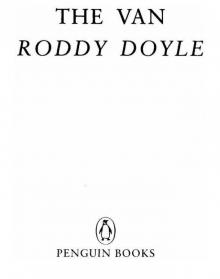 The Van
The Van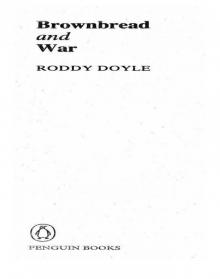 Brownbread & War
Brownbread & War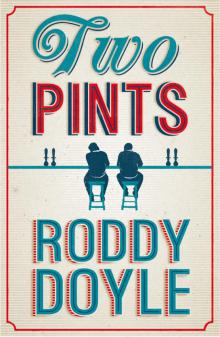 Two Pints: A Collection
Two Pints: A Collection Rover and the Big Fat Baby (Giggler 4)
Rover and the Big Fat Baby (Giggler 4)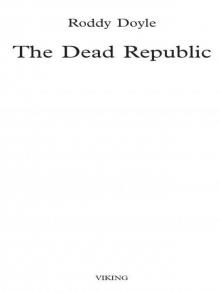 The Dead Republic
The Dead Republic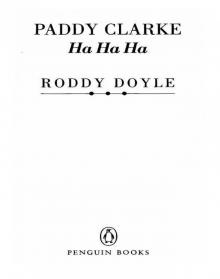 Paddy Clarke Ha Ha Ha
Paddy Clarke Ha Ha Ha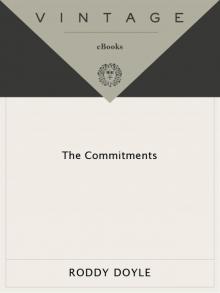 The Commitments
The Commitments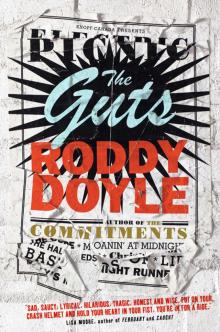 The Guts
The Guts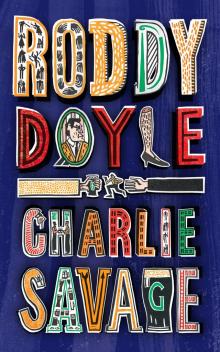 Charlie Savage
Charlie Savage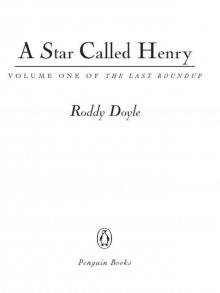 A Star Called Henry
A Star Called Henry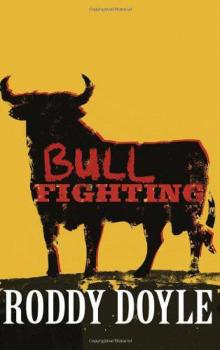 Bullfighting: Stories
Bullfighting: Stories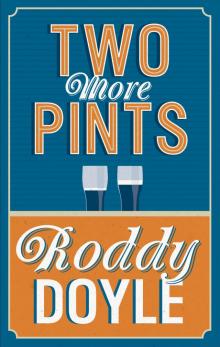 Two More Pints
Two More Pints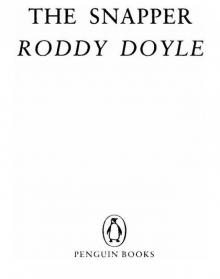 The Snapper
The Snapper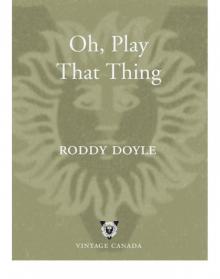 Oh, Play That Thing
Oh, Play That Thing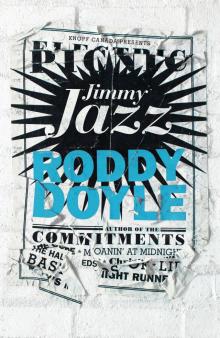 Jimmy Jazz
Jimmy Jazz Paula Spencer
Paula Spencer Wilderness
Wilderness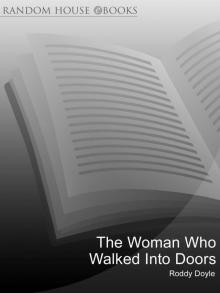 The Woman Who Walked Into Doors
The Woman Who Walked Into Doors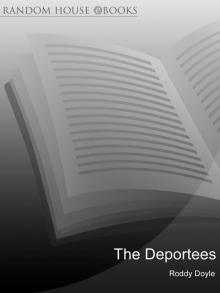 The Deportees
The Deportees Rover and the Big Fat Baby
Rover and the Big Fat Baby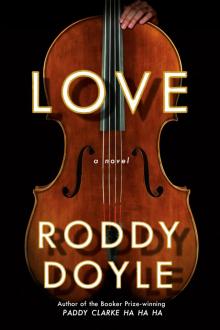 Love
Love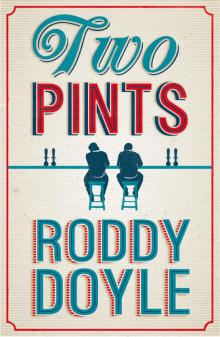 Two Pints
Two Pints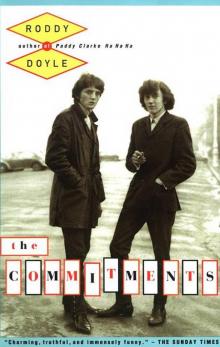 The Commitments b-1
The Commitments b-1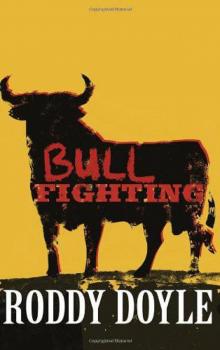 Bullfighting
Bullfighting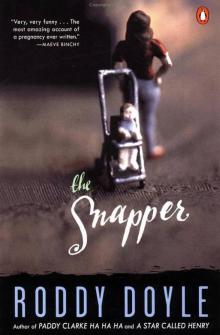 The Snapper b-2
The Snapper b-2